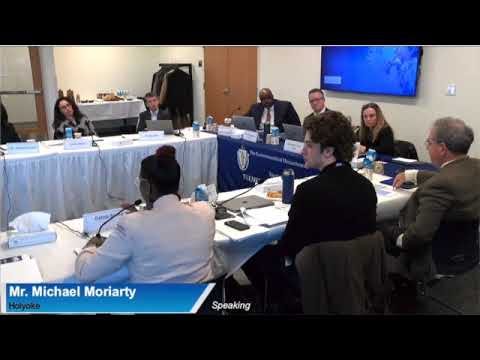Fundraising campaign launched for Cambridge Day | A compelling case for what went wrong at NPR and how to fix it | O’Brien preparing to jump into mayoral race | Boston schools chief tries to spin district’s dismal performance |
News tips? Story ideas? Email us at sbvanvoorhis@hotmail.com
Hold the champagne: Boston schools chief touts “forward motion” even as test scores slide and some buses continue to show up late
Well that was quite the spin job.
Ok, to be fair, Boston Public Schools Superintendent Mary Skipper acknowledged “critical work ahead” in an email to parents as the troubled district emerges from five years of formal state supervision and the threat of receivership.
But then Skipper took a victory lap. And that seems rather odd given that the district’s math and English scores have continued to slide, with 35 percent of all BPS students consigned now to “transformation schools” whose performance puts them in the bottom 10 percent of the state, according to a recent report by the Boston Policy Institute.
“BPS is in a considerably different place today than we were three years ago,” Skipper writes. “We have stabilized our district and are accelerating our forward motion.”
The BPS chief even touted the “historic highs” of the district’s “on time bus average.”
Ok.
Gone unmentioned by Skipper? The disastrous start to the school year, when BPS students were left waiting for buses that never came. Or that, after three years, the district has still been unable to meet the 95 percent on-time requirement as part of a state-mandated improvement plan.
Russell Johnston, the state’s outgoing acting commissioner of elementary and secondary education, was fairly gentle in remarks on the end of formal state supervision of BPS.
At a meeting Tuesday of the state’s Board of Elementary and Secondary Education, Johnston called the performance of Boston schools during the years of state oversight “a mixed bag.”
But he went out of the way to praise progress on operational improvements, including the district’s perpetually behind schedule buses.
Others, including members of the state Board of Elementary and Secondary Education, were less than impressed.
Board member Michael Moriarty said a “three year learning curve” on something as a basic as delivering students to school on time is “way too slow.”
“When a district is not in a timely way solving profound operational problems and ultimately not educating its children adequately, you have to have state oversight, you have to have state intervention,” Moriarty said.
The Boston Policy Institute recently issued a report highlighting the failure of BPS to turn around the district’s abysmal test scores during the five years of state oversight.
Greg Maynard, BPI’s executive director, called on state education officials to negotiate a new oversight agreement with BPS to replace the current one, which will expire in June.
“BPS performance pre-COVID was bad enough to elicit state intervention, and BPS appears to have no plan to turn those larger issues around,” Maynard told Contrarian Boston.
Taking another swing: Former NPR senior biz editor Uri Berliner back with another critique of his old employer and some unusual advice
Uri Berliner was widely ridiculed in the mainstream press last year when the one-time public radio stalwart quit his job at NPR and lobbed some half-cocked accusations against his old employer.
Berliner’s general critique of NPR as a news organization that increasingly caters to the interests and concerns of progressives rang true, but his specific examples proved problematic.
Now Berliner, who spent 25 years at the public radio giant, is back with another essay for The Free Press about the leftward drift of NPR’s coverage over the years.
And this time he’s right on the money.
Keep reading with a 7-day free trial
Subscribe to Contrarian Boston to keep reading this post and get 7 days of free access to the full post archives.




